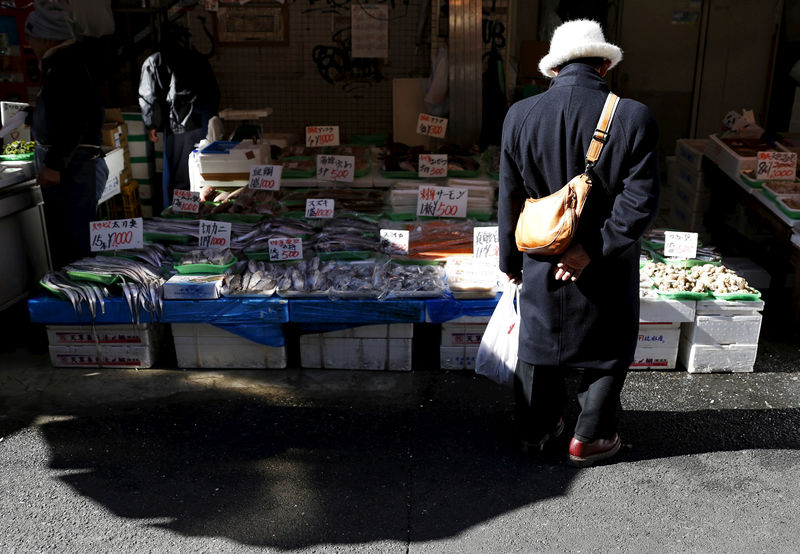By Kaori Kaneko and Tetsushi Kajimoto
TOKYO (Reuters) - Japan's household spending rose more than expected in March but real wages tumbled the most in nearly four years, dashing hopes consumer sector activity may soften the blow from external factors such as global trade conflicts.
The data add to recent weak signs in the export-reliant economy, which has been hit by slumping shipments to China and soft factory output, and cast doubt on the Bank of Japan's view that growth will rebound in the second half of this year.
Fading recovery prospects were among key topics of debate at the BOJ's rate review in April, with one board member warning that a scheduled sales tax hike in October and soft global demand could push the country into recession, a summary of the meeting showed on Friday.
"Given the current level of the unemployment rate, wages should be growing by around 1 percent and we expect a rebound in working hours to provide a tailwind over coming months," said Marcel Thieliant, senior Japan economist at Capital Economics.
"But as economic activity remains weak and the labor market slackens, we expect wage growth to keep falling short of last year's strong gains."
Household spending gained 2.1 percent from a year earlier, government data showed on Friday, rising for the fourth straight month and beating market forecasts for a 1.7 percent increase.
But separate data showed inflation-adjusted real wages fell 2.5 percent in March from a year earlier, the biggest decline since 2015, casting doubt about the resilience of consumption.
The data underlines the challenge policymakers face in breaking Japan's sticky deflationary mindset, which discourages firms from raising prices for fear of scaring away households who have become accustomed to tepid price and wage growth.
Tensions between Washington and Beijing have risen after a major setback in negotiations this week, dashing the BOJ's hopes that apparent progress in the negotiations in recent months would help global growth rebound in the second half of this year.
The modest rise in household spending, however, may help Japan's economy avert a contraction in January-March. The gross domestic product (GDP) data is due for release on May 20.
Some analysts have said a weak GDP data could heighten calls from politicians for Prime Minister Shinzo Abe to put off a twice-delayed increase in the sales tax rate to 10 percent from 8 percent in October.
"There's a chance the economy may see flat or slightly positive growth thanks to stronger-than-expected household spending," said Hiroaki Mutou, chief economist at Tokai Tokyo Research Institute.
"I don't think the government will postpone the sales tax hike if the economy shows a small growth, or even a slight contraction," he said.

Abe and his ministers have consistently said they will proceed with the tax hike unless the economy is hit by a shock of the scale of the collapse of Lehman Brothers in 2008.
(Additional reporting and writing by Leika Kihara; Editing by Sam Holmes)